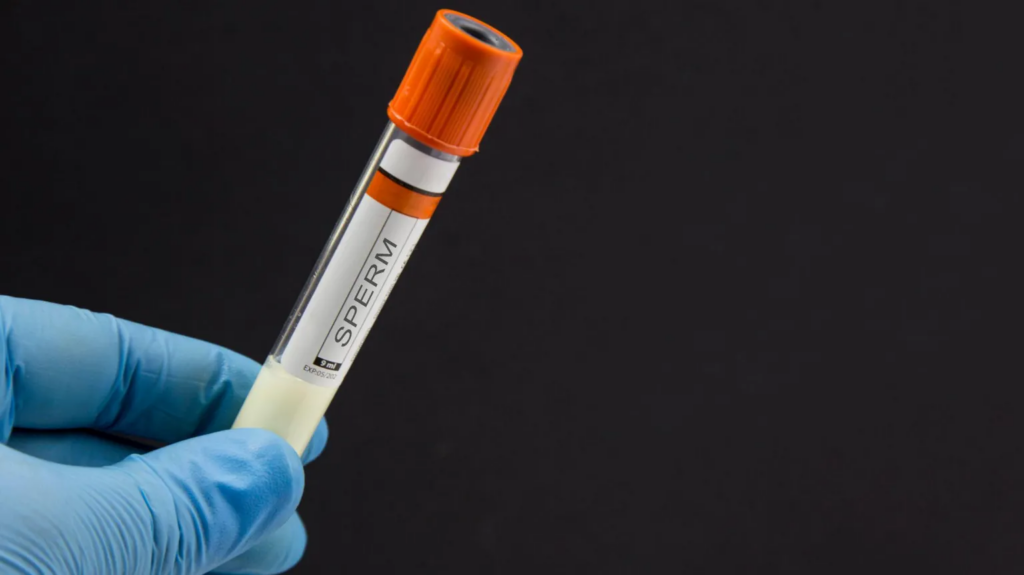A purge of frozen sperm has been ordered in the Australian state of Queensland after an audit by its health watchdog found almost half of fertility samples were at risk of misidentification.
Such mix-ups can rob parents and donor children of key genetic information and medical records, and advocates say creates a danger of accidental incest.
Queensland is home to one of the country’s largest IVF industries, however, it is self-regulated and has come under scrutiny as some of its biggest providers face claims of malpractice.
The clean-out compounds a national shortage of donated sperm which has been driven by high demand, tightening regulations, and pandemic-related disruptions.
One in six Australian couples faces difficulty trying to start a family, government data shows, with many increasingly relying on donors to conceive.
An inquiry into the multi-million-dollar sector in Queensland by the state’s health ombudsman this week found “systemic issues” concerning “quality and safety” and “safeguards for consumers, donors and donor-conceived children”.
The report detailed how 42% of sperm donations, egg samples and embryos in Queensland had “ identification and traceability” issues - meaning clinics had lost track of or incorrectly labelled samples, or allowed them to deteriorate below laboratory standards.
It also aired allegations from patients who accused IVF providers of failing to disclose the medical conditions of donors, misidentifying eggs and embryos, and mixing up sperm - which one family said had resulted in them parenting children from different biological fathers.

The body recommended that all fertility providers destroy stored donor material that does not meet current identification standards.
“The impact on consumers and the donor-conceived children... cannot be underestimated,” the report concluded, adding that “appropriate counselling should be offered” by fertility providers.
It is unclear how many sperm samples could be destroyed, but the ombudsman deemed "thousands" frozen before 2020 as "high risk” because they “did not comply with double witnessing” - a practice in which two IVF professionals check a patient’s material has been labelled correctly.
Anastasia Gunn - a mother suing one of Queensland’s fertility providers for allegedly providing her with the wrong sperm in 2014 - told the Guardian Australia she was “horrified [but] not surprised” by the ombudsman’s findings.
“It is scary to think how many patients may have unknowingly conceived with the wrong sperm.
“Why were the clinics not double-checking when they were making humans? The effects of these errors last for generations,” she added.
Latest Stories
-
Ghana-Russia Centre to run Russian language courses in Ghana
5 hours -
The Hidden Costs of Hunger: How food insecurity undermines mental and physical health in the U.S.
6 hours -
18plus4NDC marks 3rd anniversary with victory celebration in Accra
8 hours -
CREMA workshop highlights collaborative efforts to sustain Akata Lagoon
8 hours -
2024/25 Ghana League: Heart of Lions remain top with win over Basake Holy Stars
10 hours -
Black Queens: Nora Hauptle shares cryptic WAFCON preparation message amid future uncertainty
10 hours -
Re-declaration of parliamentary results affront to our democracy – Joyce Bawah
10 hours -
GPL 2024/25: Vision FC score late to deny Young Apostles third home win
10 hours -
Enhancing community initiatives for coastal resilience: Insights from Keta Lagoon Complex Ramsar Site Workshop
10 hours -
Family Health University College earns a Presidential Charter
11 hours -
GPL 2024/25: Bibiani GoldStars beat Nsoatreman to keep title race alive
11 hours -
GPL 2024/25 Bechem United keep title hopes alive with narrow win over FC Samartex
11 hours -
2024/25: Dauda Saaka scores as Asante Kotoko beat Dreams FC
11 hours -
M.anifest reflects on galamsey’s devastation 11 years after ‘No Shortcut to Heaven’
11 hours -
We’ll have the last laugh – Sammy Gyamfi slams EC’s “cantata” re-collation
11 hours

